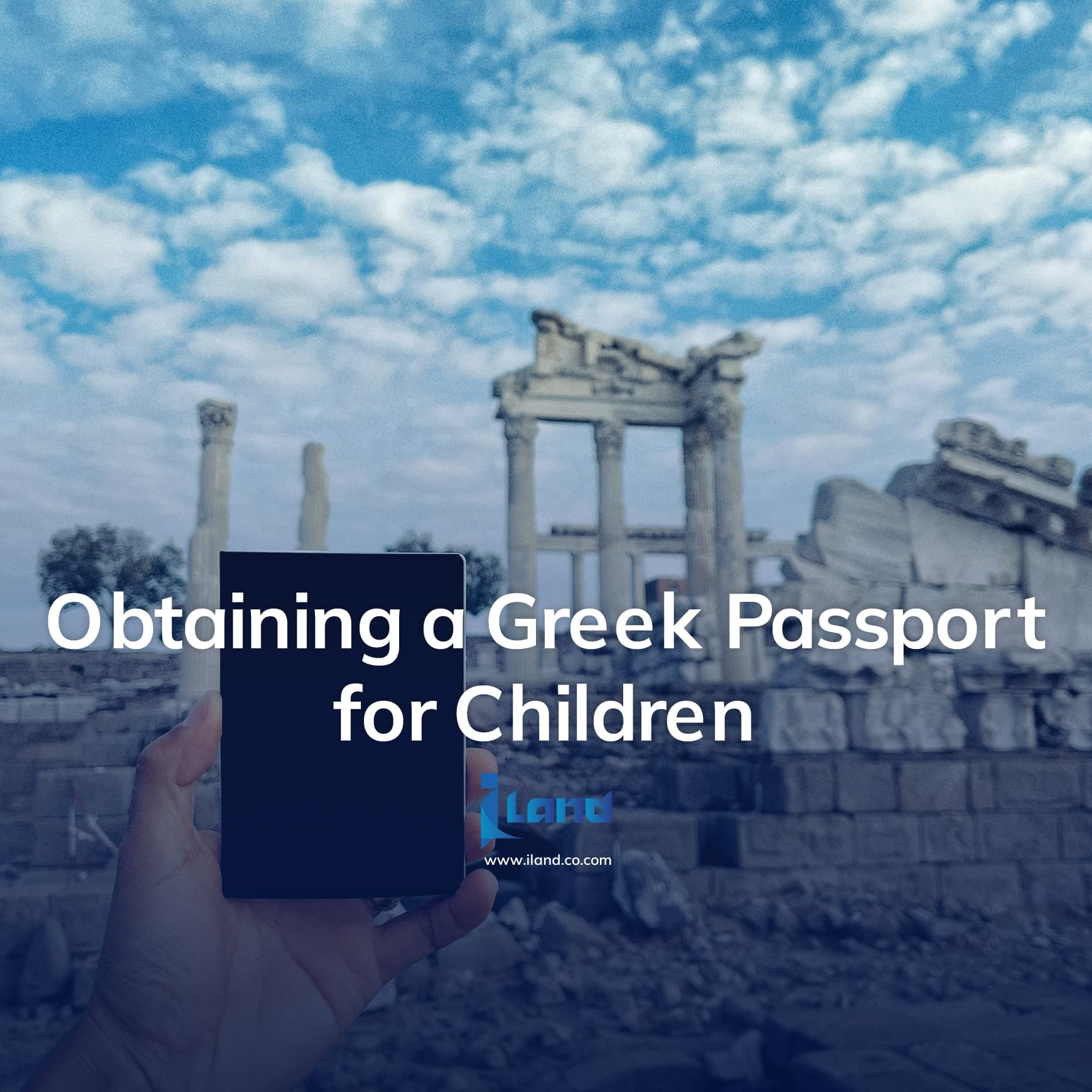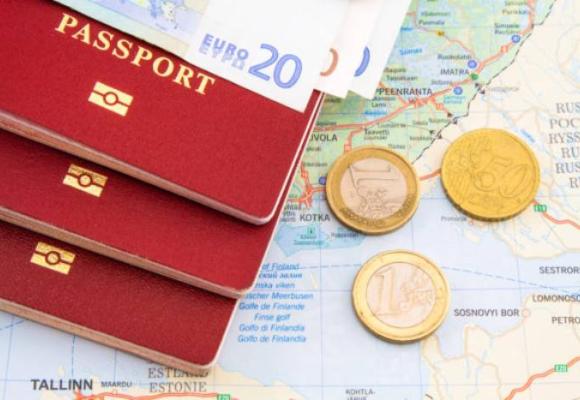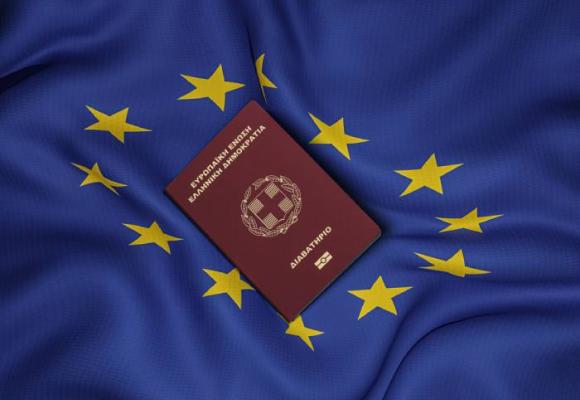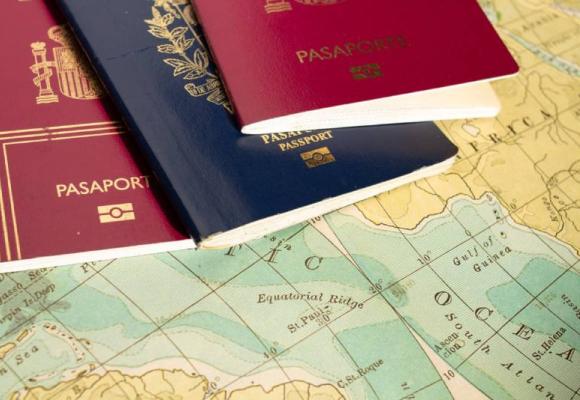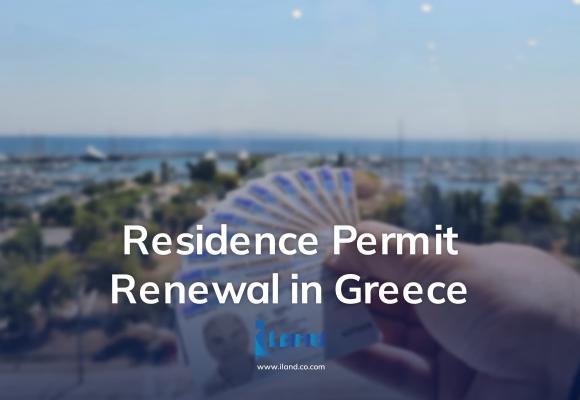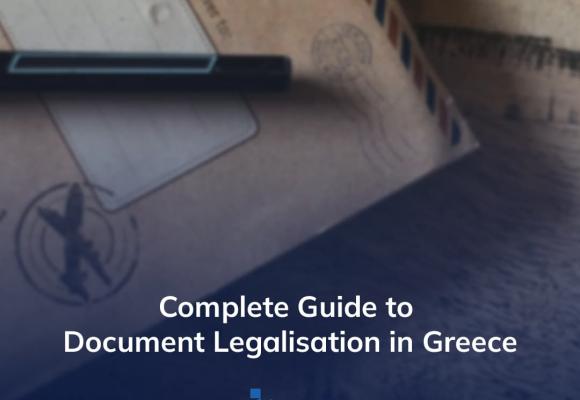Why a Greek Passport is a Valuable Asset for Your Child
A Greek passport is more than just a travel document; it’s a gateway to countless opportunities. As a member of the European Union, Greece allows its citizens to live, work, and study in any of the 27 EU countries without restrictions. For children, this means access to world-class education, healthcare, and the freedom to explore Europe seamlessly. Additionally, a Greek passport can be a lifelong asset, providing visa-free or visa-on-arrival access to over 180 countries worldwide.
Understanding Greek Citizenship by Descent
One of the most common ways children can obtain a Greek passport is through citizenship by descent. If one or both parents are Greek citizens, their children are automatically eligible for Greek citizenship, regardless of where they were born. This principle, known as jus sanguinis (right of blood), is the foundation of Greek nationality law.
For families with Greek residency, this process is often straightforward, but it’s essential to gather the necessary documents and follow the correct procedures to avoid delays.
Eligibility Criteria for Children to Obtain a Greek Passport
Before diving into the application process, it’s crucial to ensure your child meets the eligibility criteria. Here’s what you need to know:
- At Least One Greek Parent: If either parent is a Greek citizen, the child is eligible for Greek citizenship.
- Birth Registration: The child’s birth must be registered with the Greek authorities. This is especially important if the child was born outside of Greece.
- Greek Residency: While residency isn’t always a requirement, having Greek residency simplifies the process and demonstrates a strong connection to the country.
Step-by-Step Guide to Registering Your Child’s Birth in Greece
If your child was born outside of Greece, the first step is to register their birth with the Greek authorities. Here’s how to do it:
Gather Required Documents:
Child’s birth certificate (translated into Greek and apostilled).
Parents’ marriage certificate (if applicable).
Parents’ Greek passports or ID cards.
Proof of Greek residency.
Submit the Documents:
Visit the nearest Greek consulate or embassy in your country.
Submit the documents and complete the birth registration form.
Wait for Confirmation:
Once the registration is processed, your child’s birth will be recorded in the Greek Municipal Registry.
Applying for Greek Citizenship for Your Child
After registering your child’s birth, the next step is to apply for Greek citizenship. Here’s what you need to do:
Prepare the Required Documents:
Registered birth certificate.
Parents’ Greek citizenship proof.
Proof of Greek residency.
Passport-sized photos of the child.
Submit the Application:
Visit the local Greek municipality or consulate.
Submit the application and pay any applicable fees.
Await Approval:
The processing time can vary, but once approved, your child will be officially recognized as a Greek citizen.
How to Apply for a Greek Passport for Your Child
With Greek citizenship secured, the final step is applying for a Greek passport. Here’s a detailed guide:
Gather the Necessary Documents:
Child’s Greek citizenship certificate.
Birth certificate.
Parents’ identification documents.
Proof of residency.
Passport-sized photos (meeting Greek passport photo requirements).
Visit the Passport Office:
Schedule an appointment at the local passport office or Greek consulate.
Bring all documents and the child (if they’re old enough to sign).
Pay the Fees:
Passport fees vary depending on the child’s age and the processing time.
Receive the Passport:
Once processed, the passport will be mailed to your address or available for pickup.
Common Challenges and How to Overcome Them
While the process is generally straightforward, some families may encounter challenges. Here are a few common issues and how to address them:
- Missing Documents: Ensure all documents are complete, translated, and apostilled before submission.
- Long Processing Times: Be patient and follow up with the authorities if necessary.
- Language Barriers: If you’re not fluent in Greek, consider hiring a translator or legal expert to assist you.
Benefits of a Greek Passport for Your Child’s Future
A Greek passport offers numerous benefits that can shape your child’s future:
- Educational Opportunities: Access to top universities in Europe.
- Career Prospects: The ability to work in any EU country without a visa.
- Cultural Connection: A strong sense of identity and belonging to Greek heritage.
Tips for a Smooth Application Process
To ensure a hassle-free experience, follow these tips:
- Start Early: Begin the process as soon as possible to avoid last-minute stress.
- Double-Check Documents: Ensure all documents are accurate and up-to-date.
- Seek Professional Help: If you’re unsure about any step, consult our immigration lawyers.
Frequently Asked Questions (FAQs)
Q1: Can my child hold dual citizenship?
Yes, Greece allows dual citizenship, so your child can hold both a Greek passport and another country’s passport.
Q2: How long does it take to get a Greek passport?
The processing time can range from a few weeks to several months, depending on the complexity of your case.
Q3: What if my child was adopted?
Adopted children are also eligible for Greek citizenship, provided the adoption is legally recognized in Greece.
Conclusion
Obtaining a Greek passport for your child is a rewarding process that opens up a world of opportunities. From seamless travel across Europe to access to top-tier education and healthcare, the benefits are undeniable. By following the steps outlined in this guide, you can navigate the process with confidence and ensure your child enjoys all the privileges of Greek citizenship.
Remember, the key to a successful application is preparation, patience, and attention to detail. Whether you’re just starting or nearing the finish line, this journey is a meaningful way to connect your child to their Greek roots and secure a bright future. Start today, and take the first step toward unlocking your child’s potential with a Greek passport!
